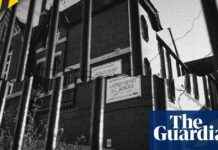According to recent data analysis, more than 80 private schools in England have closed each year on average over the past decade. Despite concerns raised by Labour’s proposal to impose VAT on private school fees, there has not been a significant increase in school closures since the announcement.
The media and the Conservative party have suggested that the VAT proposal would lead to a surge in private school closures, putting pressure on the state education sector. However, data from a government register of private schools reveals that the closure of individual institutions has been a longstanding trend, with 847 schools closing between 2013 and 2023.
Since 1987, a total of 2,583 schools have opened and 2,674 have shut down, indicating a continuous churn in the private school sector. Despite the fears surrounding the VAT imposition, the data shows that only 46 schools have closed in 2024, slightly below the average trend, with 77 new schools opening.
While some private schools have attributed their closure to the VAT proposal, the data suggests that school closures are a common occurrence due to various reasons. The government has dismissed claims that the VAT threat has led to increased closures, stating that independent schools are thriving and welcoming more students than ever before.
Education Secretary Damian Hinds noted that there may be a movement of pupils from independent schools to state schools, especially in areas where available places are limited. He also criticized Labour for not providing a detailed impact assessment of the VAT proposal, raising questions about the projected effects of the policy.
Overall, the data analysis indicates that private school closure rates in England have not been significantly affected by Labour’s VAT proposal. While concerns have been raised about the potential impact on the education sector, the numbers suggest that school closures are part of a long-standing trend rather than a direct result of the policy announcement.







